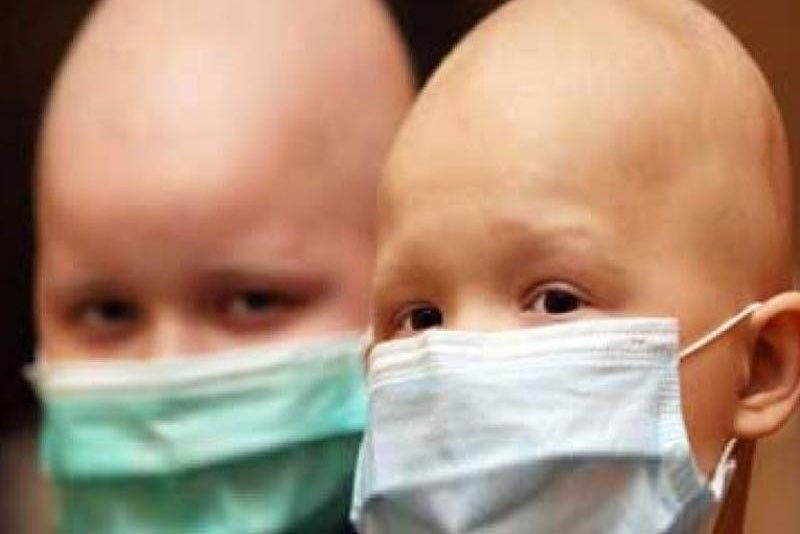UHC seen to help children with cancer

MANILA, Philippines — The Department of Health (DOH) sees a higher survival rate for children with cancer with the implementation of the Universal Health Care (UHC) early next year.
Health Undersecretary Eric Domingo gave assurances that access to medical care for children with cancer will be addressed when the department begins implementing the UHC, noting that its implementing rules and regulations (IRR) will be out by this October.
Experts have said many Filipino children die of cancer because they are not diagnosed early or are not getting the necessary treatment.
Patricia Alcasabas of the Philippine Society of Pediatric Oncology noted that while estimates say 5,000 Filipino children are diagnosed with cancer annually, the country is experiencing a shortage of doctors specializing in childhood cancer with only 51 pediatric oncologists nationwide.
The country has 130 hospitals treating children with cancer, but only three have dedicated pediatric oncology wards. Of the number, two are in Metro Manila.
Recently, Alcasabas said the World Health Organization (WHO) designated the Philippines as the first country in the Western Pacific for the global initiative to fight childhood cancer.
This WHO initiative, she added, aims to improve to 60 percent the survival rate of children with cancer by 2030. The current survival rate is pegged at only 35 percent.
Sen. Christopher Go said he would ask the DBM why it allocated only P67 billion to the DOH for the implementation of the UHC law next year when the program is supposed to receive over P88 billion from its share of sin taxes.
Meanwhile, Senate President Pro Tempore Ralph Recto sought yesterday the restoration of the P10-billion cut in the proposed 2020 budget of the Department of Health (DOH). The amount is for the construction and upgrading of government health facilities in the country.
He made the call after the Senate finance subcommittee for health, chaired by Go, approved the DOH’s proposed P160-billion budget for next year that included only P5.9 billion for the Health Facilities Enhancement Program (HFEP).
The HFEP, which he described as a treatment for lacking and dilapidated government medical facilities, was originally funded at P15.9 billion but the Department of Budget and Management (DBM) had slashed it by two-thirds.
“It is the budgetary equivalent of cutting the calorie intake of a malnourished child. Government should budget based on what the people need. It cannot be reduced to a spreadsheet exercise, lifted from a foreign-funded budgeting manual,” Recto stressed.
He said government hospitals are overflowing, with long lines, and lacking in equipment and medicines, and such deplorable conditions “cannot be seen in any accounting ledger.”
While he noted that the reason for the deep slash was the failure of the DOH to spend its funds on time, he argued that some agencies have worse fund utilization rates and yet have not been punished with a budget cut.
Recto pointed out that while the same bogey — procurement problems — is also being cited by the DBM, the projects in the HFEP menu are not hard to procure.
He added that while in the previous years, the HFEP funds were for “sunk-in-the-ground projects,” like buildings, and were bugged by delays, the spending for next year will be mostly for equipment, some of which are off-the-shelf items, which can be easily purchased.
“These are not ‘Build, Build, Build’ items that cost billions of pesos. In fact, in the first page of the HFEP list of projects, you will see piecemeal P150,000 worth of equipment to be distributed to 43 Barangay Health Stations (BHS) in Abra, Apayao, Benguet,” the lawmaker said.
For his part, Sen. Francis Pangilinan said front-liner barangay health workers should be included in the list of barangay officials who receive fixed allowances as various disease outbreaks increasingly challenge the country’s health care system.
“Health is a priority for the Filipino family, especially in these times when preventable diseases that harm babies and children are back. Many who can’t go to the hospital and doctor, especially those in remote areas, rely on the barangay health worker,” he added.
Pangilinan noted that, over the past year, the country has been visited by a series of outbreaks of vaccine-preventable diseases like measles, dengue, and polio.
In Senate Bill 261, he seeks to amend the Local Government Code — and effectively Republic Acts 6942 (Increasing Insurance Benefits of Local Government Officials Act of 1990), and 7883 (Barangay Health Workers Benefits and Incentives Act of 1995) — to expand the coverage of benefits and incentives for barangay officials to include barangay health workers, who provide healthcare services and serve as health educators. – With Paolo Romero
- Latest
- Trending


























